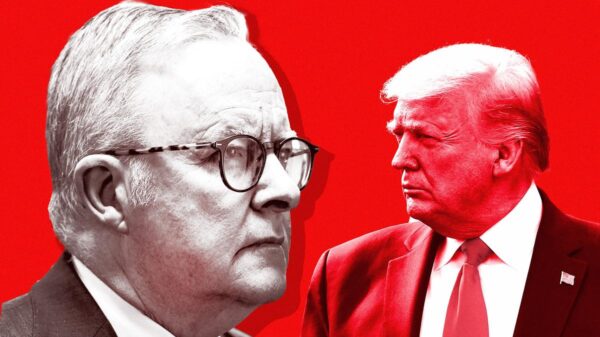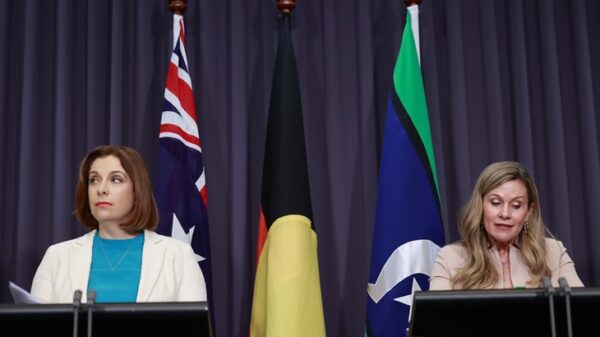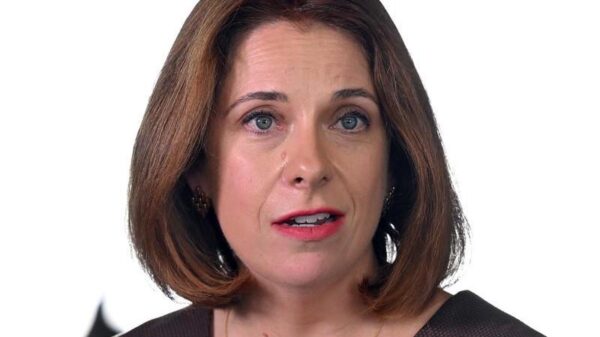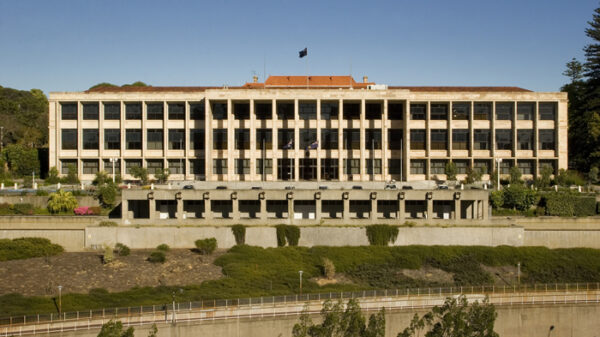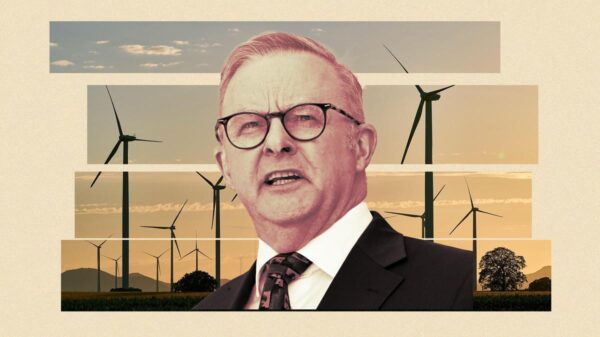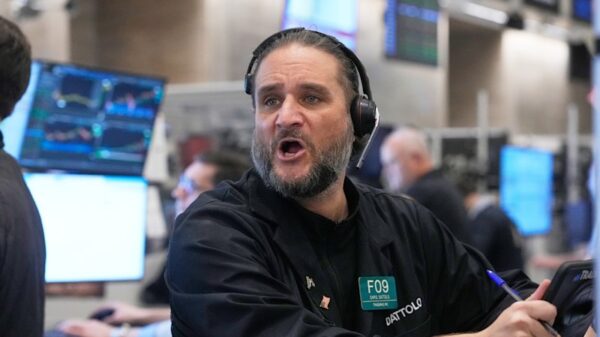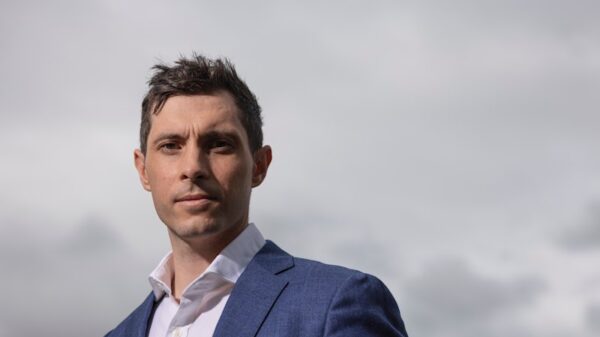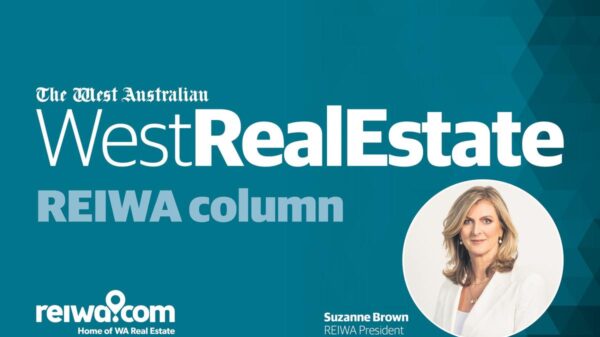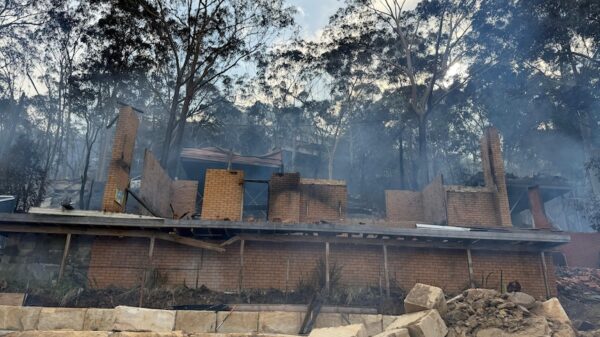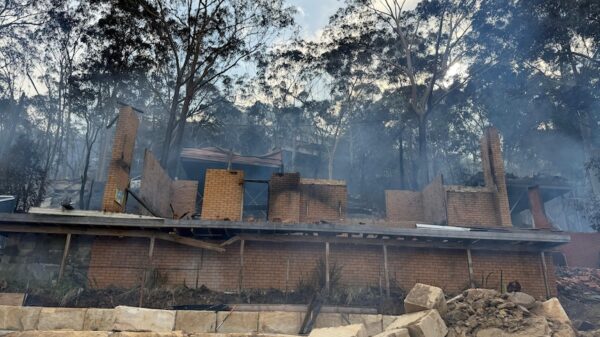Australian Prime Minister Anthony Albanese has come under scrutiny this week as he navigates a series of challenges, including a controversial diplomatic incident involving former Victorian Premier Dan Andrews and a high-cost immigration agreement with Nauru. Despite holding a dominant political position, Albanese’s responses have revealed underlying tensions within his administration.
On several occasions, Albanese appeared defensive when questioned about the details of an expensive deal to send former immigration detainees to Nauru. A brief Senate inquiry disclosed that the 30-year agreement could cost up to $2.5 billion. When pressed by the ABC for clarity, Albanese dismissed claims regarding the government’s involvement in the repatriation of “ISIS brides” and their families. His assertion that the government was not facilitating their return was complicated by the revelation that both New South Wales and federal police were preparing for their potential arrival.
Challenges in Transparency and Immigration Policy
The government’s commitment to transparency has also been called into question with the introduction of new freedom of information legislation. Critics, including former crossbench senator Rex Patrick, have labelled the changes a “counterrevolution,” arguing that they further restrict public access to essential government decision-making information.
Adding to Albanese’s woes, Andrews faced backlash for attending a military parade in Beijing, which featured an array of global leaders. Although Andrews is a private citizen now, his presence alongside prominent figures criticized for authoritarian regimes has caused unease within the Labor Party. Albanese, while acknowledging the situation, refrained from issuing strong criticism. He remarked in parliament, “I am not responsible for what every Australian citizen does.” Andrews defended his participation, stating it was an opportunity to engage with regional leaders.
On the opposition front, the political landscape remains tumultuous. The Coalition is grappling with internal divisions over climate policy, particularly concerning the net-zero emissions target. Notable senators, including Bridget McKenzie and Ross Cadell from the Nationals, crossed the floor to support a motion proposed by One Nation’s Pauline Hanson regarding immigration. These actions highlight fractures in party unity.
Opposition Gains Ground Amidst Government Struggles
Despite its internal issues, the opposition found an opportunity to gain momentum by targeting new Minister for Aged Care Sam Rae during question time. They highlighted the unacceptably long waiting lists for home care packages and delays in implementing planned reforms, originally set for July but pushed to November. The government’s need for support in passing aged care legislation through the Senate created leverage for the opposition.
In an unexpected turn, an amendment to expedite home care packages received support from a coalition of the Coalition, Greens, and crossbenchers, resulting in a rare defeat for the Labor government. Minister for Ageing Mark Butler announced the government would indeed accelerate the rollout of these packages, despite registering opposition to the amendment.
As parliament prepares for a month-long recess, Albanese anticipates a busy international summit season. Next week, he will attend the Pacific Islands Forum in the Solomon Islands, where leaders will be keen to learn about Australia’s proposed emissions reduction targets under the Paris Agreement. This target is expected to range between a 65-75% reduction from 2005 levels, with Energy Minister Chris Bowen indicating potential challenges in legislation if faced with significant parliamentary opposition.
Albanese’s most critical upcoming engagement will be a meeting with President Donald Trump in September, either in New York or Washington. The outcome of this meeting may hinge more on the president’s temperament than Albanese’s approach, adding another layer of complexity to the Prime Minister’s schedule.
As Albanese reflects on his administration’s performance, he may feel the pressure to assert a more reformist agenda. Some commentators have called for him to embrace a bolder leadership style, suggesting that failure to do so could jeopardize his political future. The upcoming month will be pivotal as he navigates both domestic challenges and international expectations.











